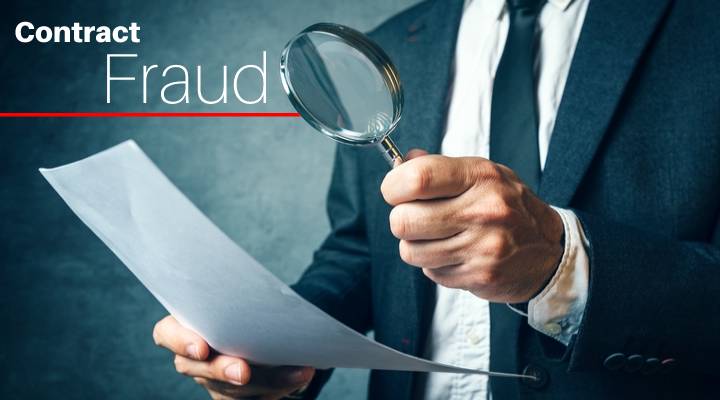A contract is an agreement between two people. Fraud occurs when someone intentionally deceives you about what you’re agreeing to. Can you imagine what would it be like if you signed a contract that you thought was okay and ended up signing up for a Free Black Porn service? What would it be like from there to get out of that problem? That’s why we made this article, to avoid at all costs that you get scammed either in the form of fraud or some trick that you didn’t realize you’re in. Here you have all the information you need so that you can sign a contract, be it for services or any other type of contract, without it ever being a headache or a worry.
What Is Contract Fraud?
First of all, you must be careful when signing contracts online because there’s a chance your information could get stolen and used by others who might not be trustworthy. Read carefully before signing anything! If someone knowingly makes a false statement about a fact they know to be true, they’re guilty of innocent misrepresentation (or lying). A person who makes a statement without knowing whether it is true or false is guilty if he knows that the statement is false, but doesn’t care enough to check if it is true. He knew that he had made false statements, but he didn’t know that they were true. Therefore, he is guilty of making innocent misrepresentations. Fraudulent misrepresentation occurs when someone lies about something to get you to sign an agreement.
Contract fraud is an unethical practice involving deceiving others into signing a contract. There are four different ways misrepresentation can occur in terms of contracts.
- Innocent: When someone makes a statement without knowing if it is true.
- Negligence: A person who makes a statement without verifying the facts.
- Fraudulent misrepresentation: Someone deliberately lies about something important.
- Equitable estoppel: When someone depends on a promise that was given by another person, but that promise turns out to be untrue. The law defines several types of contract fraud.
- False Statement: Occurs statement is one made with knowledge of its falsity.
- False Promise: When a defendant makes a promise but doesn’t intend to keep it.
- Non-disclosure: When the defendant doesn’t tell the truth about himself or herself.
What Are the Legal Consequences of Contract Fraud?
Fraud inducements occur when someone makes false statements about a fact that induces another person into entering into a contract.
Fraud in the factum occurs when someone agrees to something without understanding its true nature. This type of fraud involves entering into a contract without fully understanding its legal effects. Fraudulent inducement is when someone makes a promise that they know isn’t true, and the person who believes them signs a contract. Regardless of whether the representations are made orally or in writing, the doctrine applies. However, the doctrine doesn’t apply to cases where both parties have equal bargaining power.
Fraudulent inducement requires proof that the defendant intended to deceive the plaintiff. Scienter requires knowledge or beliefs on the part of the speaker that the statement is false. For example, if someone makes a claim about the quality of their product without knowing whether it’s true, they could be held responsible for making false statements. Another important element is reliance. To prove fraudulent inducement, the plaintiff must demonstrate that he relied on the defendant’s misrepresentations to his detriment. Reliance requires proof of the plaintiff changing his or her position because of the defendant’s misrepresentations. Courts have held that a plaintiff must prove that he or she has suffered damages as a result of a defendant’s fraud. “Damages are recoverable if you prove that you suffered any losses as a result of the fraud.”
To summarize:
- Fraud in the inducement is a legal doctrine in contract law where a court declares a contract invalid because one of the parties knew what they were agreeing to but the other party did not.
- Fraudulent inducement prevents a party who has been fraudulently induced into entering into a contract from avoiding the contract.
- There are six requirements to establish fraudulent inducements:
- A misrepresentation;
- Falseness;
- Scenery;
- Deception;
- Injury;
- Reliance.
How to Avoid Contract Fraud
Contracts play an important role for most businesses. If your business requires the services of different vendors and suppliers, then contracting them is essential for the success of your project.
However, during contract negotiation, fraud, among other issues, is one of the most common problems. Contract fraud primarily involves making a knowingly false statement that is intended to deceive someone else into signing a contract and agreeing to enter into an agreement. It also happens when someone tricks another person or company into believing he or she has formed a contract by misrepresenting the terms of the agreement.
Contract fraud is considered a criminal offense, so there are laws in place to protect people who have been victimized by this type of fraud. To prevent yourself from becoming a victim of identity theft, here are the five steps to take when starting your own business:
- Make sure you check certificates of registration and incorporation for your contract placements.
- Read up on fraud complaints.
- Request for a copy of the bank details of the company.
- Always ask for References about the company
- There are other ways to prevent contract fraud besides using a third-party service.
Should I hire a law firm to help me with contract-fraud issues?
Lawyers who specialize in contract law help people who have been cheated out of their rights under contracts. Different states have different laws regarding what constitutes fraud. Depending on where you live, legal rights may vary. A lawyer can help you gather evidence to support your claim, and may also help ensure that you get paid for any damages you suffer. If you need to hire a contract lawyer, they may be able to tell you if there are any legal defenses against your claim of contract fraud.
- If you need legal advice, contact a lawyer who specializes in contracts.
- Ask about the lawyer’s experience in handling cases involving contract fraud.
- Find out whether the lawyer represents clients like you.
- Before hiring an attorney, ask them about their experience with similar cases.
- Hire an attorney who is familiar with your local state’s laws.
- Keep records of communications with your lawyer. Businesses can use contract lawyers to avoid getting sued over their contracts.
Don’t be held back by lack of information or by not being able to discern reliable information from fraudulent information.
Seek help if you need it, because only then will you be able to come out of this problem victorious. With calm acuity and the right tools, the nightmare will certainly be over, and you will probably still benefit from this situation for all the damages you suffered from the situation caused by someone else.
The bottom line is that you should avoid it because you will possibly end up being a victim of contract fraud and going through usually a traumatic experience. If it means significant losses and a damaged reputation for your own business, then it’s especially important to be sure you’re doing everything right. On the other hand, if you think your company has been the victim of contract fraud or is facing a lawsuit over such a crime, hire an attorney to help.


